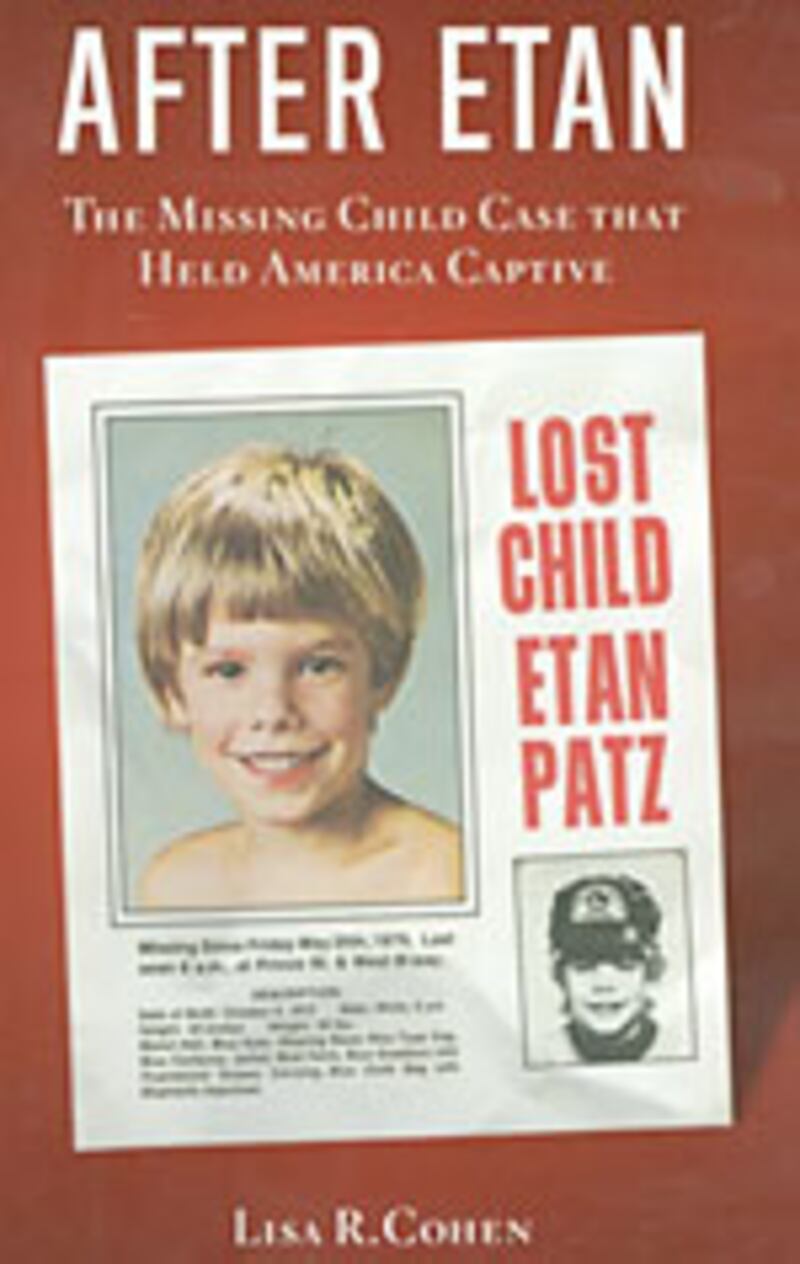
After Etan, the chilling account of the beguiling 6-year-old boy who vanished from a quiet New York street 30 years ago this month, is a heartbreaking story, scrupulously researched, well-constructed and well-written, and one that I probably would not have read if I had not been asked to do so. I’m really glad I did, because once I started I became totally engrossed in this compelling detective story.
Twice a year, Etan’s father would mail a “missing” poster of his son to the Charles Manson-like Julio Antonio Ramos while he was imprisoned for other crimes. They contained the same message: “What did you do to my little boy?”
In unraveling and revealing, for the first time, the sordid facts of this high-profile kidnapping, which gripped the nation, launched National Missing Children’s Day, and created headlines around the globe, Lisa R. Cohen, an Emmy-winning TV producer, has created a real-life thriller, which kept me up long past midnight and all the late late-night shows. In astonishing and sometimes deeply disturbing detail, she depicts the anguish of Etan’s family, the agonizing search for his abductor, and the dogged determination of a variety of law-enforcement officials to incarcerate a well-known pedophile, Julio Antonio Ramos, who admitted knowing Etan, and to force him to confess to the crime. Over the years, this quest for justice took mesmerizing twists and turns and involved psychics, mystics, mediums, bloodhounds, FBI profilers, and volunteers, along with crazy phone calls and messages, impostors, a truculent babysitter, endless false hopes, false leads, and gut-wrenching grief.
Twice a year, Etan’s devastated father, Stan, would mail a “missing” poster of his son to the Charles Manson-like Ramos, who was imprisoned for other crimes. They always contained the same plaintive message: “What did you do to my little boy?”
The hero in this harrowing tale is a former federal prosecutor in the office of Rudy Giuliani, Stuart Grabois, a six-foot-tall, steel-haired, steely-eyed native of Bensonhurst, who relentlessly pursued this case for decades and immediately reminded me of Atticus Finch, the compassionate lawyer in To Kill a Mockingbird. When Grabois, through prison informants, tried to coax a confession from Ramos, the suspect taunted the attorney with, “Grabois knows I did it [abducted, raped and murdered Etan Patz] and it’s killing him—but he can’t get it out of me.”
Years earlier, Grabois had managed to wrangle a “90 percent confession” from Ramos when he admitted to luring a young blond boy to his apartment for sex on the day Etan went missing, and said he was “90 percent sure” it was Etan when he eventually saw his picture on TV. When the boy rejected his advances, Ramos insisted he took him to a subway station and waved goodbye. He then suddenly clammed up, and refused to finish the story. He demanded an attorney, and by the time he lawyered up, the nine-year statute of limitations on child molestation had run out. Grabois was blocked, forced to find another route.

Unfazed, Grabois continued to bulldog his way through the tortuous legal system and managed to put Ramos away for 20 years on charges of molesting another young boy. (A cautionary note: Ramos, now 65, has finagled a reduced sentence and, incredibly, is now scheduled to be released 16 months early—in 2012.)
As with any good story, to divulge some of the grisly, perplexing details and the ending would be grossly unfair. Of course it can be found a click away on Google, but for mystery devotees I suggest heading straight to the bookstore and then sitting down with this haunting tale. Author Lisa R. Cohen, who conducted her first interview with Ramos 18 years ago and spent the last five reliving this case, sees her work as an “inspirational story,” one of overcoming, and moving on—a tale of heroes, and she’s right, it is.
After Etan would make a terrific movie—in this instance truth is truly is more bizarre than fiction—but who could play the upstanding Grabois? Tom Hanks, Russell Crowe? Neither has the gravitas of Gregory Peck. I have never seen Stuart Grabois, but after everything I’ve read about him, I‘ve decided he should play himself. He has the determination and moral rectitude to inspire us all and he could take the lead, as he has so many times before, and bring a sense of closure. For me, he has become a quintessential champion.
Plus: Check out Book Beast, for more news on hot titles and authors and excerpts from the latest books.
Sandra McElwaine is a Washington-based journalist. She has been a reporter for The Washington Star, The Baltimore Sun, a correspondent for CNN and People and Washington editor of Vogue and Cosmopolitan. Currently she writes for The Washington Post, Time and Forbes.





